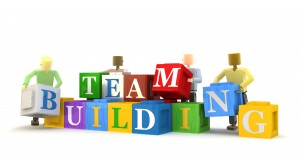 Team building in the workplace is important but it’s not the solution to every problem in your company. Team building activities are there to help employees work more efficiently, build camaraderie and bond with each other. While there are some real advantages of teamwork, such as diversity of opinions and better working relations, it’s not a one-stop shop solution for all work-related problems.
Team building in the workplace is important but it’s not the solution to every problem in your company. Team building activities are there to help employees work more efficiently, build camaraderie and bond with each other. While there are some real advantages of teamwork, such as diversity of opinions and better working relations, it’s not a one-stop shop solution for all work-related problems.
Misconceptions about Team Building in the Workplace
Working in Teams is NOT always a Good Idea
According to professor Bradley Staats from the University of North Carolina, a person’s productivity drops to 40% whenever they work in a team. There are no concrete results showing that working in teams improve the efficiency of the employee or the team where he belongs. ‘Collaborative inhibition’ is the assumption that work is completed quicker when two or more people are working on it, but that’s not always the case.
Ninety Percent of a Team’s Fate has been Written before they Even Start to Work Together
J. Richard Hackman calls this the 60-30-10 Rule. Hackman has studied different teams working in various industries, and he concludes that 60% of a team’s destiny has already been written even before they meet each other. The team leader’s efficiency, the team goal’s difficulty, and the skills of the team members play a big role in determining whether a team would work out or not. If the team is comprised of the wrong combination of people, say their skills or attitudes don’t complement each other, then things are not going to work out smoothly.
The 30% is determined by how they meet, how they interact, and how they split up the responsibilities between them. Agreeing on expectations and rules is also important part of team building in the workplace.
A Team Member doesn’t always have to be a Team Player
Another misleading belief about teams is that ‘everybody has to be a team player,’ and that they should be friends. However, research reveals that a team’s performance isn’t dictated by the quality of the relationships amongst team members.
Team building in the workplace is important to establish good working relationships, but it’s just that- working relationships. You don’t need to force them to hang out with each other; in fact, a little competition and a little greed won’t hurt. Take Hackman’s conclusion with 78 European and American orchestras: the better they sounded, the more rivalry they have behind the stage.
Treat Top Performers Differently
Treating team members equally could hurt the motivation and drive of everybody. If top performers are given the same benefits and treatment as the lazy ones, then how can you expect employees to aim higher? Treat top performers differently, so the rest of the team would work hard to grab those benefits and opportunities. Yes, it might spark controversy or jealousy but it’s only logical to reward those who work hard.
© 2014 Incedo Group, LLC






